I have many-to-one mappings working fine, but a one-to-many relationship between locations and location_times keeps giving me an error.
I keep getting this error:

on this line of code:

Mappings look like this:
Location:
public virtual IList<LocationTimes> LocationTimes { get; set; }
public virtual int locationID { get; set; }
public virtual IList<LocationTimes> LocationTimes { get; set; }
public Location()
{
LocationTimes = new List<LocationTimes>();
}
Location Map:
public class LocationMap : ClassMap<Location>
{
public LocationMap()
{
Table("Locations");
Id(x => x.locationID).Column("ID");
HasMany(x => x.LocationTimes)
.Inverse()
.Cascade.All();
Location Table:
CREATE TABLE [dbo].[Locations](
[ID] [int] IDENTITY(1,1) NOT NULL
...
CONSTRAINT [PK_Locations_1] PRIMARY KEY CLUSTERED
(
[ID] ASC
)WITH (PAD_INDEX = OFF, STATISTICS_NORECOMPUTE = OFF, IGNORE_DUP_KEY = OFF, ALLOW_ROW_LOCKS = ON, ALLOW_PAGE_LOCKS = ON) ON [PRIMARY]
) ON [PRIMARY] TEXTIMAGE_ON [PRIMARY]
LocationTimes:
public class LocationTimes
{
public virtual int ID { get; set; }
public virtual Location Location { get; set; }
}
LocationTimesMap:
public class LocationTimesMap : ClassMap<LocationTimes>
{
public LocationTimesMap()
{
Table("Location_Times");
Id(x => x.ID);
References(x => x.Location).Column("LID");
}
}
Location_times table:
CREATE TABLE [dbo].[Location_Times](
[ID] [int] IDENTITY(1,1) NOT NULL,
[LID] [int] NULL,
[EHStart] [int] NULL,
[EHEnd] [int] NULL,
[EHSell] [money] NULL,
CONSTRAINT [PK_Location_Times_1] PRIMARY KEY CLUSTERED
(
[ID] ASC
)WITH (PAD_INDEX = OFF, STATISTICS_NORECOMPUTE = OFF, IGNORE_DUP_KEY = OFF, ALLOW_ROW_LOCKS = ON, ALLOW_PAGE_LOCKS = ON) ON [PRIMARY]
) ON [PRIMARY]
The full error message:
"{"could not initialize a collection: [WhygoDomain.Location.LocationTimes#4] [SQL: SELECT locationti0_.Location_id as Location4_1_, locationti0_.ID as ID1_, locationti0_.ID as ID1_0_, locationti0_.LID as LID1_0_, locationti0_.EHStart as EHStart1_0_ FROM Location_Times locationti0_ WHERE locationti0_.Location_id=?]"}"
I can see from the sql in the error message that it is indeed looking for locationti0_.Location_id, which I know doesn't exist. I don't know why it's looking for that though.